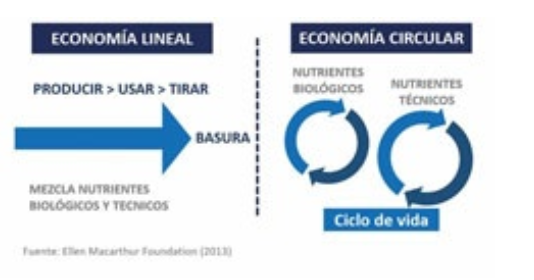Circular economy and agroecology pillars to food sovereignty and food education in Cuba
Main Article Content
Abstract
In the midst of a global food and health crisis (Covid-19 pandemic and its effects) aggravated by the wars in Ukraine and Russia, and facing imminent challenges such as the growth of the world population, higher levels of consumption of natural resources and energy, with unequal food consumption and high rates of unusable agro-industrial waste, a paradigm shift is needed, the necessary and urgent transition from a linear production model to a Circular Economy, a paradigm shift is needed, the necessary and urgent transition from a linear production model to the circular economy, an approach that in synergy with Agroecology are identified, according to the authors, as pillars to achieve food sovereignty in Cuba. At the same time, the transition from conventional agriculture to a sustainable, friendly and environmentally responsible agriculture is proposed. Therefore, the objective of the present work was to enunciate and/or define key concepts for a better understanding of the subject in question, such as: circular economy, agroecology, local development, food sovereignty and security, sovereign and sustainable local food systems.
Downloads
Article Details

This work is licensed under a Creative Commons Attribution-NonCommercial 4.0 International License.
References
Burgo Bencomo et al. (2019). La Economía circular una alternativa sostenible para el desarrollo de la agricultura. Revista Espacios.Vol.40 (No 13) Año 2019. Pág.2.
Casimiro Rodríguez, L. and Casimiro González, J.A. (2018). How to make prosperous and sustainable family farming in Cuba a reality. Elem Sci Anth, 6(1), p.77. DOI: http://doi.org/10.1525/elementa.324.
Casimiro, L. (2019). Estudio de la resiliencia en la agricultura familiar de montaña en el macizo Guamuaya, Cuba. En Revista Eco Solar. No.67 (enero-marzo). Disponible en https://ecosolar.cubaenergia.cu.
______(2022). Turismo agroecológico en Cuba para el fortalecimiento de sistemas alimentarios locales y sostenibles. En revista Eco Solar No. 80. ISSN-1028-6004. Disponible en https://ecosolar.cubaenergia.cu
Casimiro, L. y Martín, G. (2023). Conferencia: Necesidad de una transición agroecológica en la agricultura cubana. En (UNISS) 2023.
Ecolec Fundación (2021). Economía Circular: claves para entender el modelo que está Revolucionando la sostenibilidad https://www.ecolec.es/informacion-yrecursos/economia-circular/ [12 de mayo 2021].
Economía (2023). Economía circular: definición, importancia y beneficios. Disponible en https://www.europarl.europa.eu
Fundación Ellen MacArthur (2014) ¿Qué es la Economía Circular?, p. 3.
GBS. (2018). Evento global organizado por el Consejo Alemán de Bioeconomìa. Disponible en https://www.minambiente.gov.co
García A., Nova A. y Cruz B. A. (2014). Despegue del sector agropecuario: condición necesaria para el desarrollo de la economía cubana. En: CEES, ed. Economía Cubana: transformaciones y desafíos. La Habana: Ciencias Sociales, pp. 197-260.
Informe anual de 2019 del IICA. Instituto Interamericano de Cooperación para la Agricultura (IICA), marzo 2020.
Ley 148/2022 de «Ley de Soberanía Alimentaria y Seguridad Alimentaria y Nutricional» Gaceta Oficial de la República de Cuba. Sitio Web: http://www.gacetaoficial.gob.cu/
Llobera Serra, F. y Redondo Arandilla M. (2015). Economía Circular y Agroecología. Integrando Alimentos Km 0 y Gestión de Biorresiduos. Enero 2015.
Márquez, l. (2019). La economía circular en la agricultura. Disponible en https://feriavalladolid.com
OpenMind. Comunidad del conocimiento de BBVA (2021). Cuatro conceptos para comprender la economía circular. Disponible en https://www.bbvaopenmind.com
Pérez Consuegra, N. y Caballero Grande, R. (coord.). 2021. Agroecología en Cuba - Iniciativas y evidencias innovadoras escalables. La Habana, FAO, MINAG y ACTAF.
Plan de Soberanía Alimentaria y Educación Nutricional en Cuba (2020). Ministerio de la Agricultura. La Habana. En https://www.fao.org
Pomares, H. y Guzòn, A. (2007). Catálogo de Tecnologías para el Desarrollo Local. Cedel-Citma. Ciudad de La Habana, Cuba.
Red Vasca de Municipios Sostenibles (2019).Contribución de la Red Vasca de Municipios hacia la Sostenibilidad a los Objetivos de Desarrollo Sostenible. Bilbao, Ihobe Sociedad Pública de Gestión Ambiental https://www.euskadi.eus/contenidos/documentacion/contribucion_municipios_ods/es_de f/adjuntos/US21_ODS_CAST.pdf
Reese E. (2003). La Construcción de Estrategias de Desarrollo Local en las ciudades argentinas. Curso de Postgrado Desarrollo Local en Áreas Metropolitanas. Repositorio Cepal.

